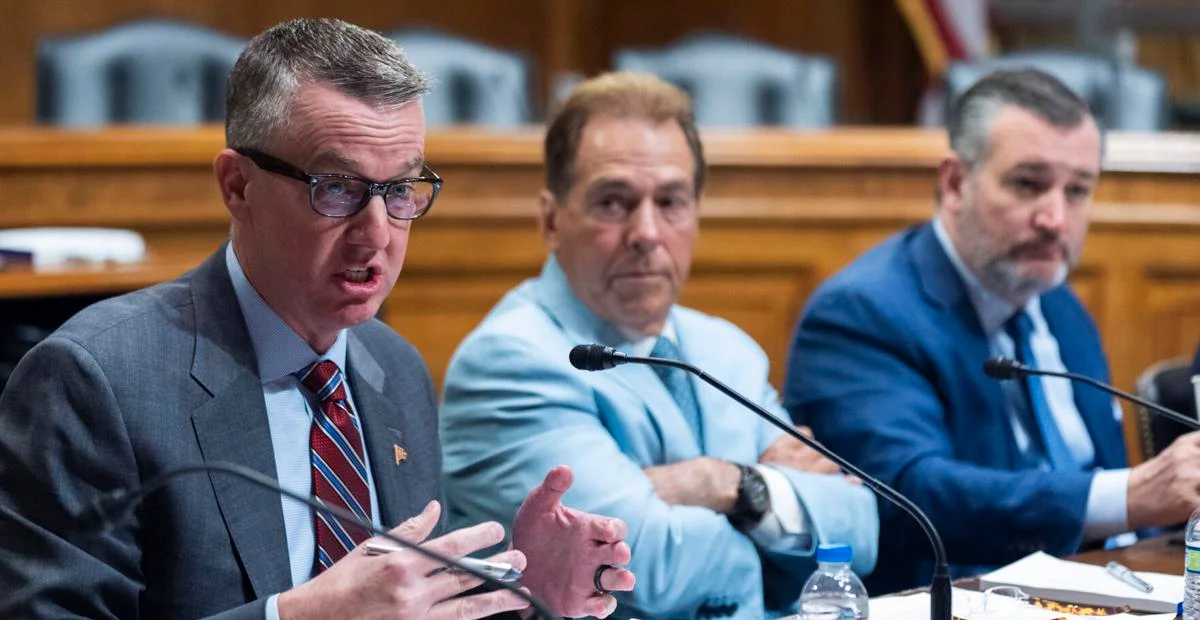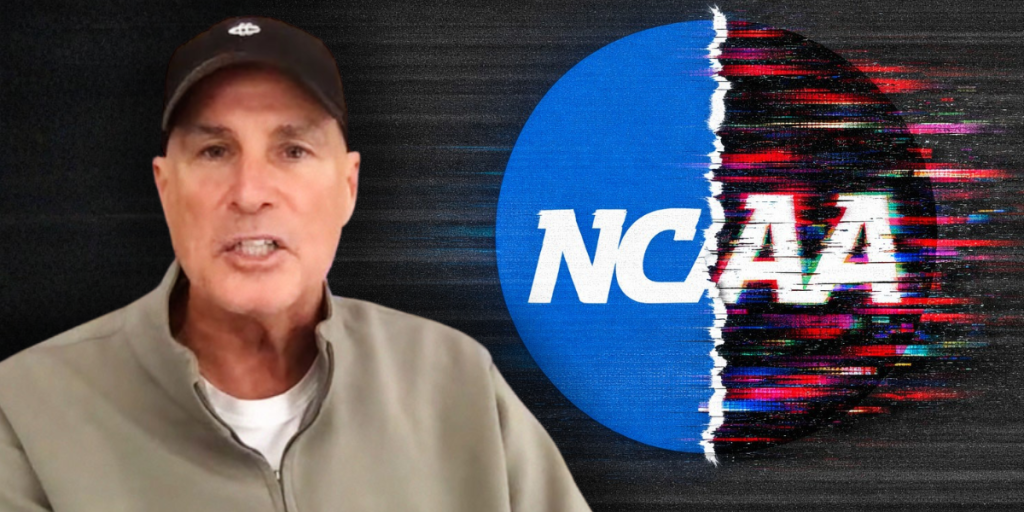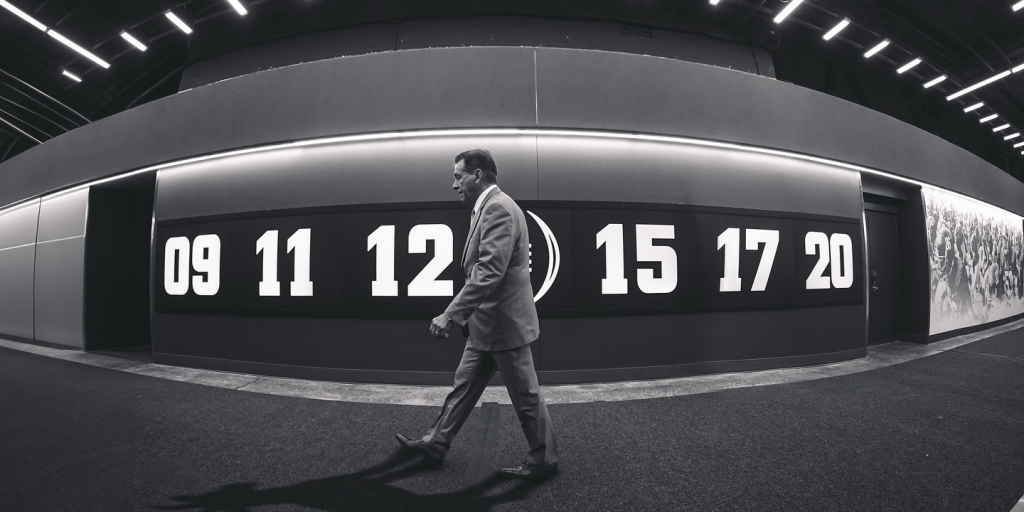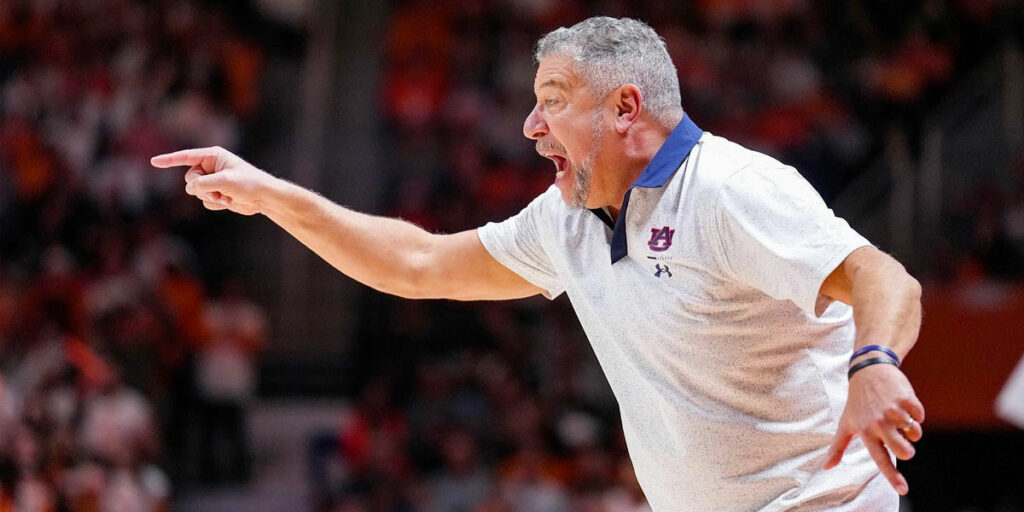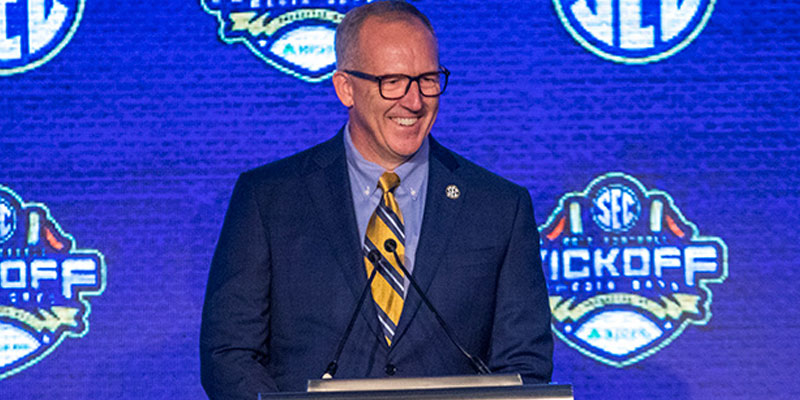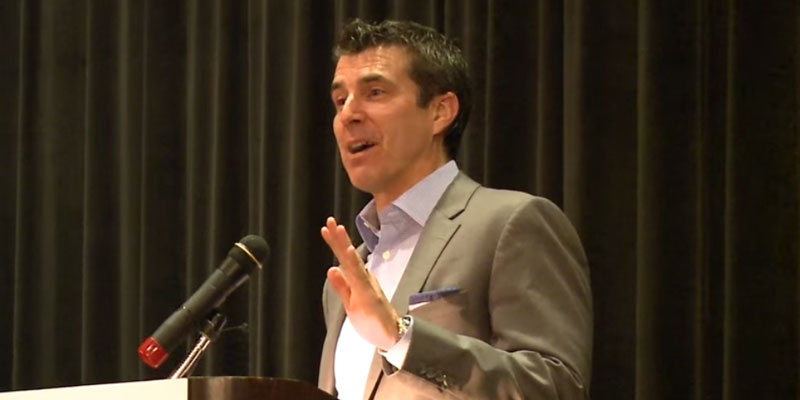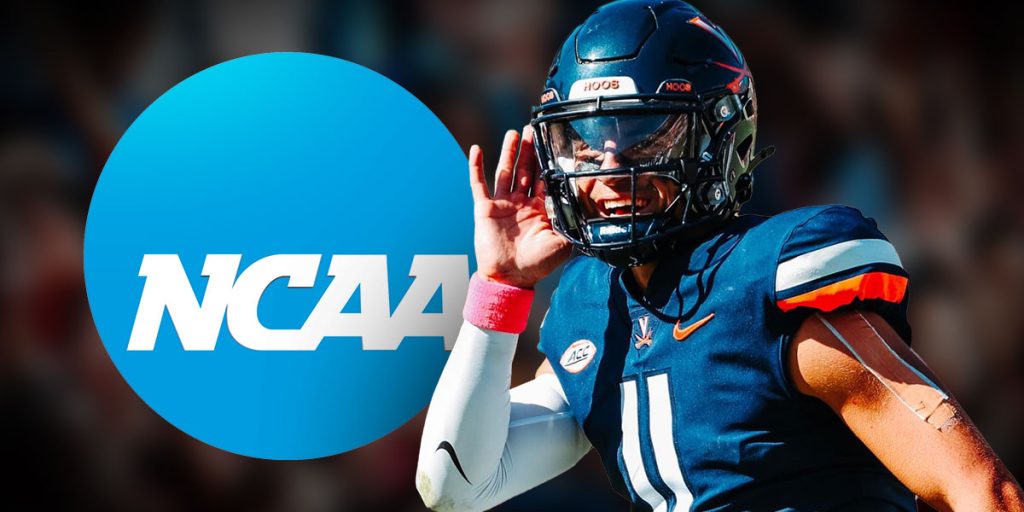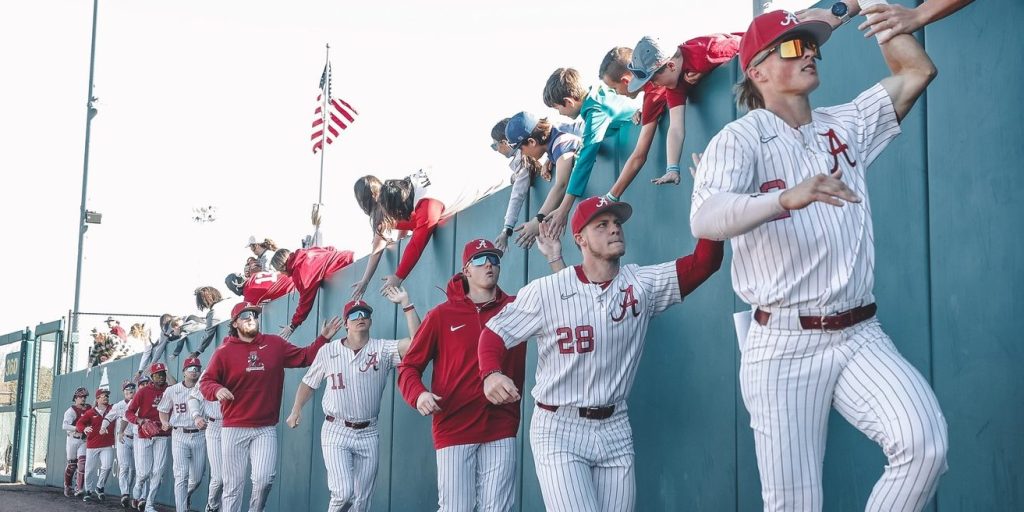Since 2021, the NCAA has allowed its student athletes to profit from their Name, Image, and Likeness (NIL) rights.
While universities are not permitted to directly pay players — athletes can be compensated by boosters, companies, and other third parties. Oftentimes, this compensation is distributed by “collectives” that have no direct affiliation with schools.
Despite the new era they’ve ushered in to modern college athletics, NIL and NIL collectives exist in a gray area — they are not uniformly regulated.
Now retired, one of the most influential figures in the history of college sports has emerged as an outspoken leader in the current push to do just that: Nick Saban.
An uneven patchwork of state laws provides athletes and collectives in some states more financial freedom than others. Recent litigation has weakened the NCAA and lessened their control over player compensation. Earlier this year, a judge stripped the organization of much of their enforcement power related to NIL infractions.
The absence of a common definition for “compensation” has created an environment that U.S. Senator and former Auburn head football coach Tommy Tuberville, compares to the Wild West.
The uncertainty has led to larger, existential questions. As the Dartmouth men’s basketball team took the radical step of forming a union — the entire world of college sports could be transformed forever if such a precedent was adopted at scale.
Confusion sweeping the sport has caused coaches, athletes, and administrators alike to call for a national standard for player compensation, whether implemented by the NCAA or by the federal government. As reality set in, a handful of U.S. Senators have looked closely at the threats and opportunities posed by NIL and authored legislation to regulate it.
Those lawmakers chiefly include U.S. Senators Joe Manchin (D-WV), Tommy Tuberville (R-Auburn), and Ted Cruz (R-TX).
This week, Sen. Cruz hosted a roundtable discussion for coaches, players, administrators and elected officials to speak frankly about the way forward. Former University of Alabama football head coach Nick Saban and Athletic Director Greg Byrne were front and center.
Much of the conversation centered around, not just NIL, but rather, how student-athletes should be classified. Saban told the panel that he believes the current system is worse than free agency.
“I think the system that we have in the NFL, where players are employees, would be better than the system that we have now, because at least it creates competitive parity,” Saban said.
Saban went as far as to say the current NIL system made him lose faith in beliefs he’s held for his entire career.
“All the things that I believed in for all these years, 50 years of coaching, no longer exist in college athletics,” Saban said. “It always was about developing players. It was always about helping people be more successful in life.”
“The whole idea of boosters being able to contribute money to collectives established a sort of pay-for-play model, which I don’t think is in the best interest of college athletics in the future,” Saban said. “To come up with some kind of a system that still can help the development of young people I think is paramount to the future of college athletics.”
However, both Saban and Byrne were clear in the belief that student-athletes shouldn’t be considered employees. Saban advocated for a “revenue-sharing model,” but it’s unclear what that would look like on a large scale.
“I think the number one solution to all this is if we can have some kind of a revenue-sharing proposition that does not make student-athletes employees,” said the former coach. “I don’t want them to be employees, but I want them to share in the revenue in some kind of way.”
RELATED: Is Alabama lagging behind others in NIL?
The issue of employment and collective bargaining has far more potential than NIL to shape the college athletics landscape, sports industry analyst Amanda Christovich says.
The implications would be vast if all student-athletes were legally recognized as employees. Experts are unsure how an employment ruling would synchronize with Title IX and the lower levels of organized sports; St. Joseph’s athletic director Jill Bodensteiner has even claimed that the Dartmouth decision could affect DII, DIII, club, and high school teams.
As Saban spoke, the employment question was being discussed elsewhere on Capitol Hill. Running simultaneously to the roundtable was a hearing in the U.S. House examining Dartmouth’s union.
The roundtable continued with Byrne and NIL attorney Darren Heitner sharing differing perspectives on their goals for potential legislation.
“We’re looking for some safe havens. From an employee status standpoint, from a Title IX standpoint, and then just some safe havens from an antitrust standpoint,” said Byrne.
“If Congress is motivated to affirmatively classify athletes as not being employees, then it should also do the job of ensuring better working conditions,” said Heitner. “I credit [the University of] Alabama for doing a wonderful job. But Congress needs to step in if it is going to make sure that athletes are not employees to also then help them out and codify that those working conditions are set in place for every school across the country.”
RELATED: Alabama, Auburn coaches talk NIL playbook at Capitol
Sen. Cruz brought the hearing to a close with an intentional call for Republicans and Democrats to solve these challenges together. At a time the two aisles are so far apart, Cruz said the future of the sport is on the line, and believes federal legislation is around the corner.
“I think we’re really close — and we need to get it done. If we don’t get it done, the consequences for thousands and thousands of young people across the country would be enormously harmful,” Cruz said. “I appreciate everyone being part of this, and I look forward to the next stage, and to hopefully getting the legislation agreed to passing it and getting it over the finish line.”
It’s unclear what that bill will look like. Lawmakers have never been able to bring an NIL bill to a vote, in large part because of difficulties hammering out fine details and disagreements over whether the NCAA’s amateurism model should be protected.
After the roundtable, Cruz told reporters outside there’s a “50-50” chance of a bill being passed before the election in November.
Charles Vaughan is a sports analyst and contributing writer for Yellowhammer News.




